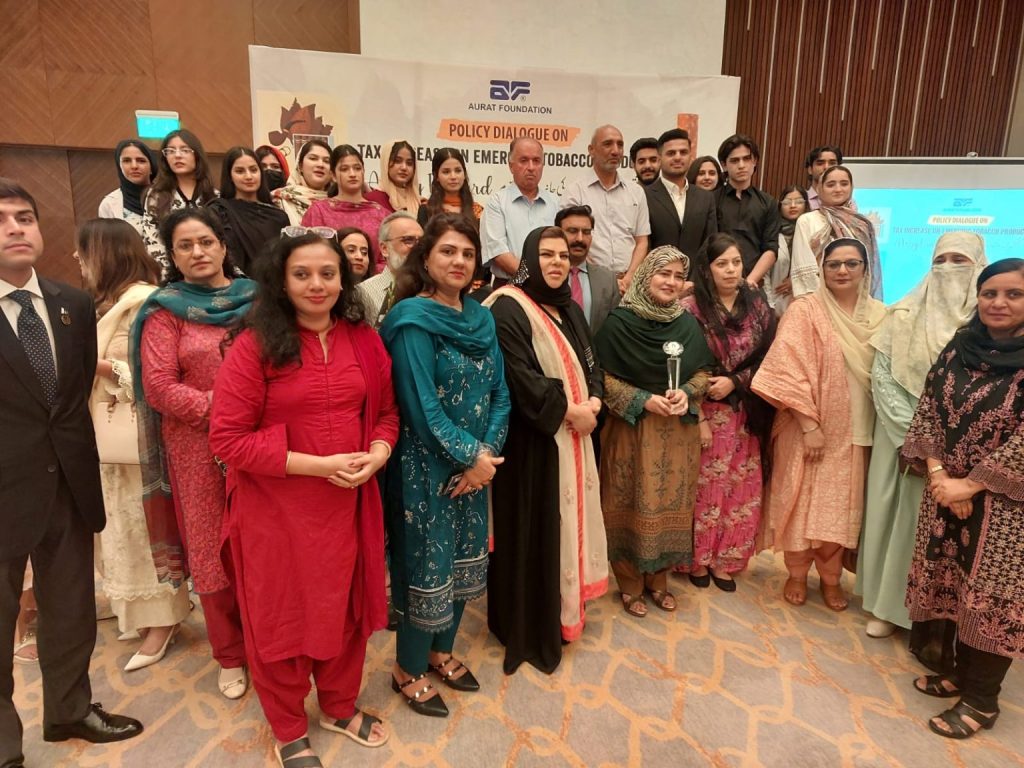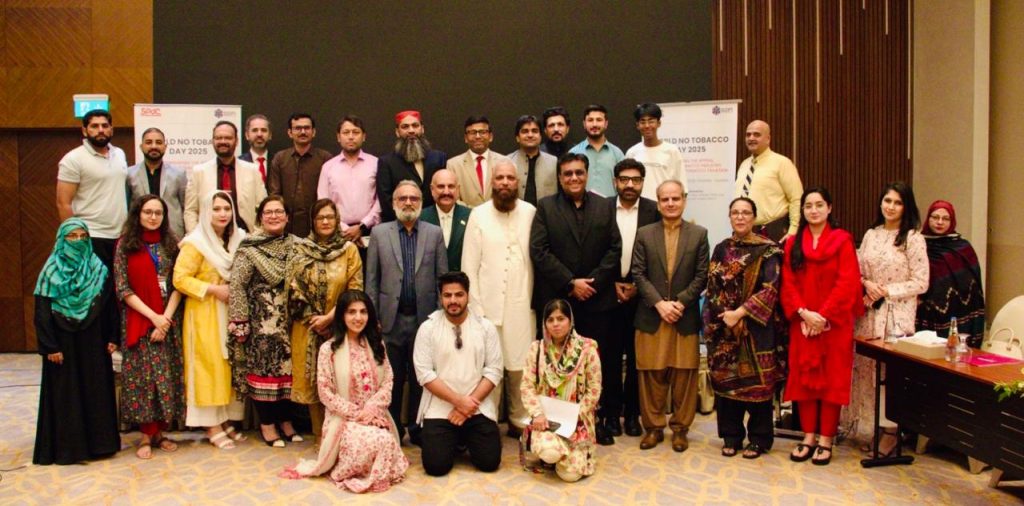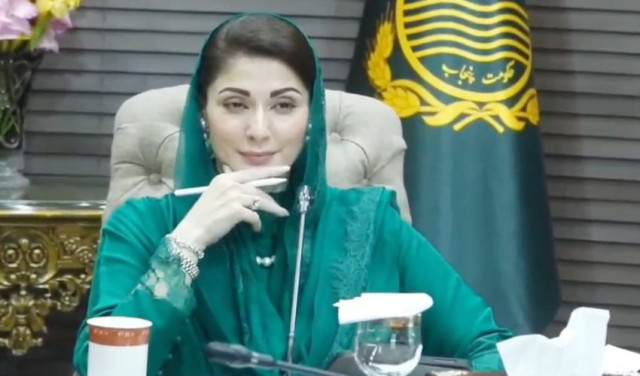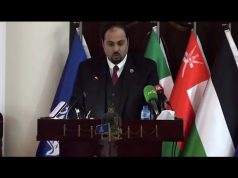ISLAMABAD, Saturday, May 31 (WNP): As Pakistan joined the global observance of World No Tobacco Day 2025 on Saturday, policymakers, public health experts, and civil society organizations called for urgent and comprehensive measures to curb rising tobacco consumption, particularly among the country’s youth.
In her official message, Punjab Chief Minister Maryam Nawaz Sharif warned of the devastating consequences of tobacco use, describing it as “an epidemic, a poison that threatens our lives, homes, and loved ones.” She emphasized that smoking is not merely a harmful habit but a grave public health threat, and highlighted the provincial government’s ongoing legal and awareness initiatives aimed at creating tobacco-free schools, hospitals, and public spaces.

“Raising awareness about the harms of smoking is not just the government’s responsibility—it is a shared duty,” the Chief Minister stated, urging parents, teachers, scholars, and civil society to unite in building a smoke-free future.
According to recent estimates, over 23 million Pakistanis use tobacco products, contributing to more than 160,000 deaths annually from tobacco-related diseases, including cancer, heart conditions, and respiratory ailments. One in every five adults in the country smokes, while approximately 10% of schoolchildren aged 13 to 15 are also reported to be using tobacco products.
Public health advocate Dr. Sana Rauf expressed concern over the increasing appeal of smoking among the youth, citing social media marketing and the widespread availability of single-stick cigarettes as major enablers. “Despite laws, enforcement remains weak. Youth are falling victim to aggressive tobacco industry tactics,” she said.

Anti-tobacco campaigners identified three major challenges in controlling tobacco use: easy access to cigarettes, industry-driven promotional strategies, and weak implementation of existing laws.
In Peshawar, the civil society organization Blue Veins, in collaboration with Lady Reading Hospital (LRH) and the Provincial Alliance for Sustainable Tobacco Control, hosted a multi-stakeholder awareness event themed “Unmasking the Appeal: Exposing Industry Tactics on Tobacco and Nicotine Products.”
Dr. Tariq Khan Barki of LRH criticized deceptive marketing by tobacco companies. “We witness firsthand the human cost of tobacco addiction—from chronic illnesses to death. It’s time to strictly regulate these manipulative tactics,” he said.
Speakers including Dr. Ihtesham and psychologist Dr. Qazi highlighted the psychological manipulation used by the tobacco industry to glamorize its products. Qamar Naseem, Program Manager at Blue Veins, underscored the industry’s interference in policymaking and called for stronger, systemic resistance through legislation and public awareness.
In Islamabad, the Society for the Protection of the Rights of the Child (SPARC) and Youth Advocates Against Tobacco (YAAT) clubs organized a dynamic event to amplify youth voices. Through speeches, music, films, and art, young participants condemned the tobacco industry’s efforts to target them.
Dr. Khalil Ahmad Dogar, Program Manager at SPARC, proposed a Rs. 39 per pack increase in the Federal Excise Duty (FED) on cigarettes for FY 2025–26. He revealed that the shift toward low-taxed economy brands is costing the national exchequer billions. “This isn’t just about health—it’s about fiscal integrity,” he asserted.
Ahead of the federal budget, think tanks including the Sustainable Development Policy Institute (SDPI) and the Social Policy and Development Centre (SPDC) held a seminar focused on tobacco taxation.
Dr. Abid Qaiyum Suleri, Executive Director of SDPI, called on the Federal Board of Revenue (FBR) to align tax mechanisms with income levels and public health priorities. SPDC’s Asif Iqbal proposed a Rs. 40 per pack increase in FED and challenged the tobacco industry’s exaggerated claims about illicit trade.
Dr. Waseem Saleem, Technical Advisor on tobacco taxation at the WHO, estimated that Pakistan lost PKR 82 billion in potential revenue over two years due to tax stagnation and shifting production patterns.
Other speakers advocated for a single-tier tax system, improved Track and Trace enforcement, and clear regulation of emerging products like vapes and nicotine pouches.
At a policy dialogue on Friday, parliamentarians, FBR officials, and health experts echoed demands for stronger laws and enforcement. MNA Saher Kamran highlighted her legislative efforts, while MNA Sabeen Ghauri stressed the need to modernize laws to cover all nicotine products.
MPA Tahira Mushtaq called for a provincial levy in Punjab and regulation of e-cigarettes, while MNA Naeema Kishwar Khan urged support for tobacco farmers to transition to alternative crops.
Safdar Raza of Aurat Foundation criticized the current two-tier tax structure, calling it a loophole for industry evasion. He and Ms. Mumtaz Mughal also emphasized the gendered impact of tobacco, particularly on women-led households.
Dr. Arsalan Haider, Director of the Tobacco Control Cell at the Ministry of Health, reiterated the government’s commitment to WHO’s Framework Convention on Tobacco Control (FCTC). He said legislative amendments are being finalized to address legal gaps.
Dr. Shabana Saleem, Director General at the Ministry of National Health Services, confirmed that the ministry has submitted a comprehensive proposal to revive the Tobacco Control Cell and raise tobacco taxes in the upcoming budget. “This is not just a health issue—it’s an economic imperative,” she stated.
The dialogue concluded with a unanimous call for comprehensive tax reforms, robust law enforcement, and cross-sectoral cooperation to stem Pakistan’s tobacco epidemic.




